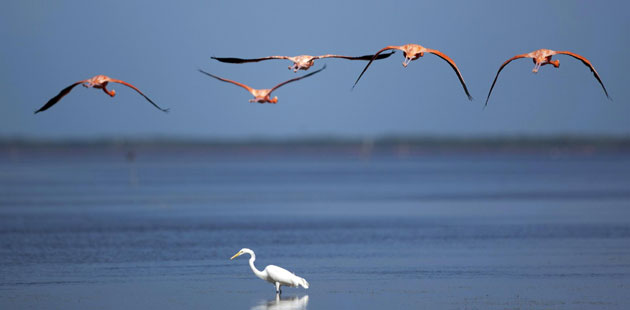US Web censorship bill may slash the threads of the Net
Updated: 2011-12-21 10:22
By Jules Quartly (China Daily)
|
|||||||||

Legislators responsible for governing the Internet in China must be a little bit tickled by what's going on in the United States at the moment and even tempted to say, "I told you so."
Having been repeatedly ticked off for "harmonizing" the Net, or checking the total free flow of information within its virtual borders, it appears that American legislators want to follow the same path - or even go a bit further and meddle in other countries' business.
 |
I refer to the Stop Online Piracy Act (SOPA), which would sign off on a law that appears to be aimed at fighting copyright infringement, but, its many detractors claim, would in fact lead to censorship.
Congress postponed a vote on the act, but it's still hanging, supported by the usual mix of corporate, right-wing and fundamentalist Christian lobbying groups. For the latter pair, SOPA is the thin end of the wedge to further control what we see or can access. As usual, they cite terrorism and protecting children as their rationale.
A vote is scheduled for SOPA on Wednesday, after which it would have to go to the House of Representatives and the Senate before President Barack Obama makes the decision to sign off on it - or not.
If the law is passed as it stands, the US government or copyright owners would be able to shut down any website suspected of hosting copyrighted material, possibly without a court warrant. This could signal the end for websites like YouTube that hosts a heady mix of content, much of which is in the gray zone when it comes to copyright. After all, YouTube hosts other people's content, so it can hardly say that it produced it.
Corporate content providers in Hollywood and major broadcasters are obviously keen for the act to pass because it means they will have a stranglehold on content and thereby increase profits.
That's the commercial angle.
Meanwhile, the Department of Justice would be encouraged to seek court orders against "rogue" websites outside the US that stand accused of copyright infringement. So, it's not just a US issue.
The free speech angle appears to be a reaction to whistle blower websites like WikiLeaks, which host content belonging to both private and government institutions and arguably, therefore, infringe on copyrights.
I say, arguably, because there could be a public interest dimension to publishing such material. But the law would brook no argument, because the government wouldn't have to take the case to court. It would be a fait accompli.
Internet and website pioneers have, almost to a man, come out against the proposed law. For instance, Google co-founder Sergey Brin was moved to say: "Imagine my astonishment when the newest threat to free speech has come from none other but the United States."
Companies like Yahoo, eBay and Netscape claim the bill will "undermine the framework" of free expression, while Wikipedia has threatened to temporarily blank out its pages to draw attention to the controversial act.
It's a huge issue and affects anyone connected to the Internet. All of us, basically. Not that we have any say.
It would assert the suzerainty of the US over all other countries when it comes to the Internet and possibly lead to the World Wide Web becoming a fragmented shadow of what it is.
This act illustrates the tension between opening up the Internet's borders and shutting them down.
While idealists want the Net to be free, most people accept that some control is necessary. As ever, the answer would appear to be getting the balance right.











